Hadur facilitates agric wealth creation tourism
No matter the level of resources, there is an opportunity for wealth and job creation in farming or other agribusiness ventures if the investors or their operators acquire the right knowledge. According to Olufunke Taiwo, chief executive, Hadur Travel and Tours, knowing what to do and how to do it is the turning point in an investor’s ability to create value and jobs, break-even and create wealth in any agribusiness ventures.
Tawio explains that acquiring that knowledge in an environment that is suited to the environment in Nigeria and other African countries, which utilise the latest cutting-edge but simple technologies, is available on the African soil at the Songhai Centre, in Port Novo, Benin Republic. Therefore, for about three years, Hadur Travel and Tours, pioneer of agro-tourism in Nigeria has been at the fore-front of taking knowledge-seeking tourists to this centre, and other places to acquire knowledge of agribusiness.
At the centre, the intricacies of farming are practiced with latest easy-to-utilise technologies. The centre was founded by Godfery Nzamujo, a Dominican reverend father in 1985.
According to Kwesi Kofi, one of the tour guides at the Songhai Centre, there are three levels of production at the farm – the primary, secondary and tertiary production. Kofi explains that “at the primary level, there is the animal production and crop production, where the raw materials are produced.”
He said the raw materials produced at the primary level are then processed at the secondary level and then taken to the tertiary level for commercialisation. This tertiary level involves delivery of the products. It is also where they have the hotel accommodation for visitors to the farm and the profit earned is reinvested back into the farm operations.
Kofi explains that at the middle level of the farm’s organogram is where they also have the administration, coordinating all activities such as the training programmes at the centre and the communication and technology. Due to the possibilities the centre offers to all levels of investors to learn how to create wealth in agribusiness, hundreds of youths between ages 18 to 35 years come for training from all over Africa at the centre. They are given accommodation, fed and given loans to start their own agribusiness on completion of their trainings. They learn how to grow crops, rear livestock and do fish farming, utilise mechanisation and produce biogas. The loans are given by the Songhai Centre so that the youths would be able to replicate the efficient system being operated at the centre.
Some of the unique features of the agribusiness opportunities with huge potentials for wealth creation entail the fact that nothing is wasted at the centre.
According to Kofi, at the end of a crop production cycle, the wastes would be used to produce animal feeds and for fertilising the land. When the animals are fed, their dung would also be used as organic fertiliser for the land. Grass is used in mulching or covering the land, to allow micro-organisms to be multiplied in the soil.
The different livestock meat are processed and sold to guests at the African and European restaurants on the farm and the animal intestines are used to fertilise the land. These intestines are also used to produce maggots for feeding of catfish and thereby reduce cost of production.
Biomass and animal dung are also used in fertilising water for the production of catfish, to get the zooplantktons and phytoplanktons, those are the micro-organisms that would fix the oxygen for the fish through the process of photosynthesis. The water is pumped at the end of the cycle to irrigate the crops. Biogas is also produced from wastes at the farm to get methane gas to cook in the kitchen and run the 20 KVA generators to power some light bulbs. Waste water is purified using water hyacinths and then the water is recycled.
Water is produced on the farm and all the satchets are recycled and turned into pellets which are used in production of plastic containers. Soaps are also produced on the farm using base raw materials such as cucumber, carrot, neem and so on.
Also, on an industrial scale, farm produce are processed into juice, syrups, jam, tomato puree without the addition of any additives or preservatives but preserved through pasteurization. All the bottles and jars used for the packing of the fruits are produced at the farm. Electricity is generated on the farm to power machineries using all forms of renewable energy. Apart from highly sophisticated machineries which are mostly fabricated at the centre, there are also simple ones for investors with little capital. Within the centre, there is an a smaller area called the Songhai Village in which all the large scale productions on the farm are scaled down and very simple equipment and processes which also utilizes modern technologies are used to demonstrate to investors with low capital that they could start small and still efficiently create wealth from agribusiness.
According to Olufunke Taiwo, when agro-tourists or trainees come to the Songhai Centre, they choose which aspects of the production they could adopt. Godfery Nzamujo, founder of the Songhai Centre, advises investors to adopt an integrated approach rather than focusing on only one or two aspects of farming. He says this is to ensure that wastes in one section of the farm can be utilised as raw materials in other sections and thereby eliminate wastage and create wealth.
Taiwo says most of Hadur Travel clients who have visited the farm either on holiday to relax, to learn or get trained have adopted these techniques and have started realizing the benefits of their visits and adoption of some of the techniques they learnt at Songhai Centre
Abdulsalam Jibril, one of Hadur Travels and Tour’s client says a visit to Songhai is never a wasteful experience. “There is always something to learn and I have learnt a lot that will surely be used to improve my business,” says Jibril.
Olughor Blessing, another of Hadur’s agro-tourists says, “Though fish farm business is notas easy as people say but taking some steps can make it easy. With my training from Songhai in Porto Novo in conjunction with Hadur Travels, on return I was able to join hands with some notable fish farmers in Sapele, Delta State to form a co-operative known as “Sapele Fish Farmer and Sellers Multi-Purpose Society. Now we produce fishes to table size and sell to consumers to enable the public within Sapele environs get fishes at cheaper price. Some persons believe cat fish is for the rich but our group has been able to make fishes cheap for the public and have also been able to create wealth for ourselves as young and educated Nigerians.”
Adewale Omotoso poultry, livestock and crop farmer of over 20 years says, “I went to Songhai farm in August and discovered a lot of things which we have not been practising before then especially mulching which I put to use immediately on my return. We now cover our plantains & bananas with leaves & dry wood to prevent evaporation and retain moisture.”
Lamidi T.A Ololade says an agro-business tour can never be completed without a visit to Songhai Centre.
Onyeani Nwosu, a retired top banker, an agro-tourist of Hadur Travel to Israel and Songhai Centre has started a farm in Abia state utilizing most of the knowledge garnered at the agro-tours. He says “Subsequently, in 2013, we set up a farm called Green Town Farms Ltd to rear poultry and cultivate cassava, palm plantation, maize and melon. We produced broilers (chicken meat) in the livestock section. Our oil palm plantation has just been established and the trees will start yielding in due course. The other crops will be harvested within the year. Our global objective is to establish an integrated farming system where waste in one section of the farm would become raw materials in another section.”
Source Oluyinka Alawode
Business day 8th Oct 2014

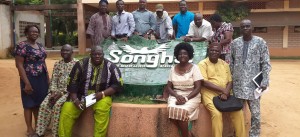
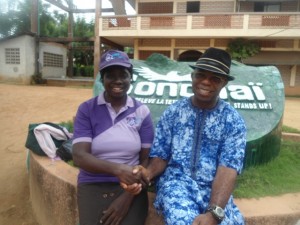
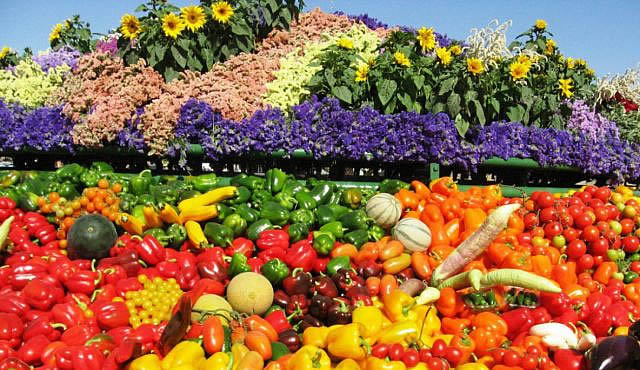
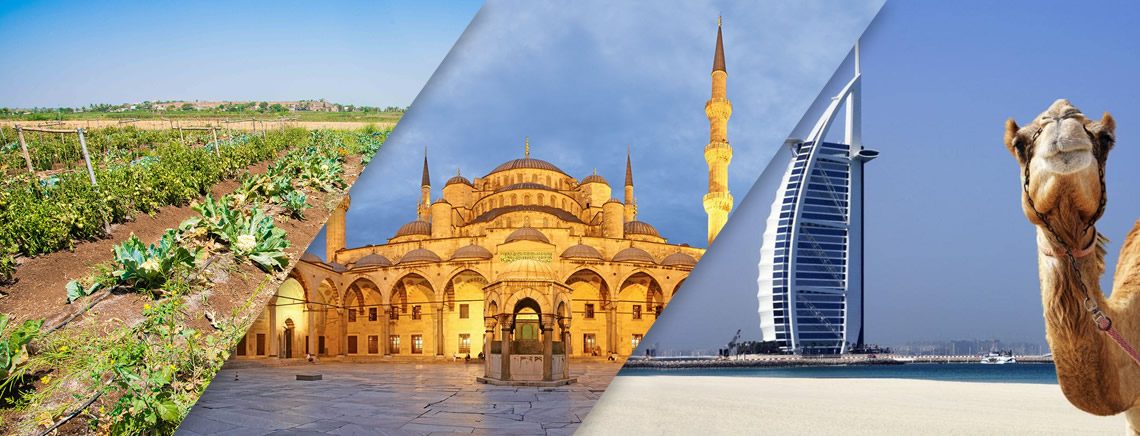
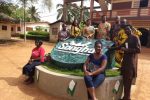
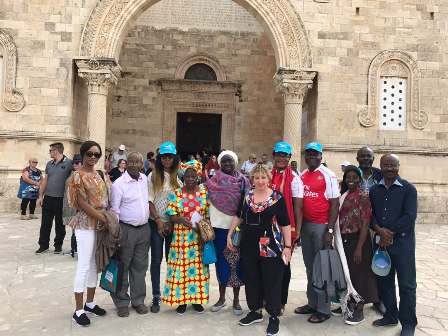
0 Comment